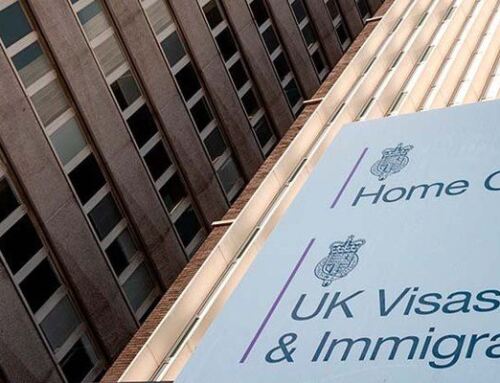The persons you choose to administer your estate are called executors and the people / charities etc you want to leave your estate and belongings to are called beneficiaries.
Your Will may also provide directions as to your funeral instructions.
WHY DO I NEED A WILL?
It is estimated that only a third of people living in Scotland have a Will, which means that the remaining two thirds of Scots die leaving no Will (intestate) and this means that they leave their hard earned possessions to be distributed by inflexible rules set out in law, having no consideration for the wishes or circumstances of the individual concerned.
A Will can be a simple document which allows you to plan who receives what and when. It is very flexible and can be tailored to ensure that a person’s final wishes are respected. It also allows a person with a larger estate to consider Inheritance Tax planning. Many millions of pounds go to the Government each year, either because people have not made a Will or because they did not know, that with good advice and planning, they could cut the tax bill or even avoid paying tax altogether.
WHAT HAPPENS IF I DIE WITHOUT MAKING A WILL?
The lack of a Will can cause uncertainty, distress and additional expense for those who are left behind.
If you die without making a Will, or have a Will that is not legally valid, your estate will be dealt with in accordance with the law of intestate succession. An additional Court process to appoint your executor is necessary. Only beneficiaries entitled to a share of your estate can be appointed by the Court as executors. It is also likely that your estate would have to pay for a compulsory insurance policy known as a Bond of Caution.
While in some instances the way in which your estate is distributed under the law of intestate succession may accord with what you want; this may not always be the case. The current law on succession has remained generally unchanged for over 50 years, and has not therefore kept pace with changing family structures, such as unmarried couples and extended families.
The lack of a Will can cause uncertainty, distress and additional expense for those who are left behind. Where your family circumstances are more complex – the consequences for your loved ones could be potentially devastating.
In summary, if you die without making a Will, it will take longer to wind up your affairs and incur additional expense.
WHAT HAPPENS TO MY ESTATE IF I DIE WITHOUT LEAVING A WILL?
Firstly, the law gives ‘Prior Rights’ to the spouse / civil partner. This means that, after any debts and other liabilities have been settled, your spouse or civil partner will inherit your interest in the matrimonial home up to the value of £473,000; furniture and personal effects, in the property, up to the value of £29,000; and an entitlement to the first £50,000 in cash (if you die leaving children) or £89,000 (if you die without children). Your children will also be entitled to a third of your net moveable estate.
If, after settlement of the surviving spouse / civil partner’s Prior Rights, there is any estate left, the spouse / civil partner and any children you have, take their ‘Legal Rights’. This means that the spouse / civil partner is entitled to a further one third of your net moveable estate if you die leaving children or one half of your net moveable estate if you die leaving no children.
Once ‘Prior Rights’ and ‘Legal Rights’ have been settled any remaining estate is divided among your surviving relatives according to a hierarchy set out by the Succession (Scotland) Act 1964.
Making a Will should not be a lengthy process.
IF I AM NOT MARRIED WOULD MY PARTNER BE ENTITLED TO ANY PART OF MY ESTATE?
If you are unmarried, your partner does not have an automatic right to inherit from your estate. If you die without leaving a Will your partner may be entitled to apply to the Court for an award of either or both, money and transfer of property. This is not an automatic right and the Court has wide discretion as to whether to make an award or not. As it is necessary to make an application through the Court, there will be legal expenses incurred by your partner. Further, there are strict time limits on when an application requires to be made.
To ensure that your partner is adequately provided for and to avoid unnecessary expense and distress, you should make a Will.
HOW LONG DOES IT TAKE TO PREPARE A WILL?
Making a Will does not need to be a lengthy process. One of the biggest myths of all is that making a Will takes a lot of time, energy and money. In reality, all it takes is an hour or two of your time and is usually a fairly straightforward process. An appointment with your solicitor to confirm your instructions and another appointment to sign your Will once you are happy with it.
WHAT ABOUT DIY WILLS?
Pre-printed DIY Wills are now widely available at a low cost, and there are also numerous online providers offering cheap wills that can be completed online in a matter of minutes. Whilst these types of Wills can be attractive due to lower costs, there are many unforeseen pitfalls. For example, many pre-printed Wills are prepared in accordance with English law rather than Scots law. In addition to this, not everyone’s circumstances are straightforward or can easily be summarised by ticking a box. The main benefit of instructing a solicitor to make your Will is the advice you will receive which is tailored to your personal circumstances and wishes for the future.
IF I ALREADY HAVE A WILL DO I NEED TO DO ANYTHING?
Once you have made a Will, it is just as important to review it every so often to ensure it still reflects your wishes and any change in circumstances, such as having children, divorce, marriage or remarriage. By regularly reviewing the terms of your Will with your solicitor, you will be reassured that your estate goes to the person(s) you want to receive it.
Our experienced solicitors will be happy to discuss all the available options.
WHAT HAPPENS TO MY WILL?
Once signed, your Will must be kept in a safe place. At Innes Johnston, clients typically opt to have the original Will stored in our fireproof safe, free of charge, and a copy sent to them for their records. However, if you want to hold the original, it is your right to do so.
Our experienced solicitors will be happy to discuss all the available options to help you make suitable arrangements for your own personal circumstances. The key to successful estate planning is not only to start early but also to review the plan on a regular basis to ensure your wishes are continually reflected, no matter what life may throw at you.
WE ARE HERE TO HELP
If you would like to meet with one of our Solicitors to get some further advice on this matter, please contact one of our offices:
Kirkcaldy – 01592 263455 | Glenrothes – 01592 757114 | Leven – 01333 429320
www.innesjohnston.co.uk







